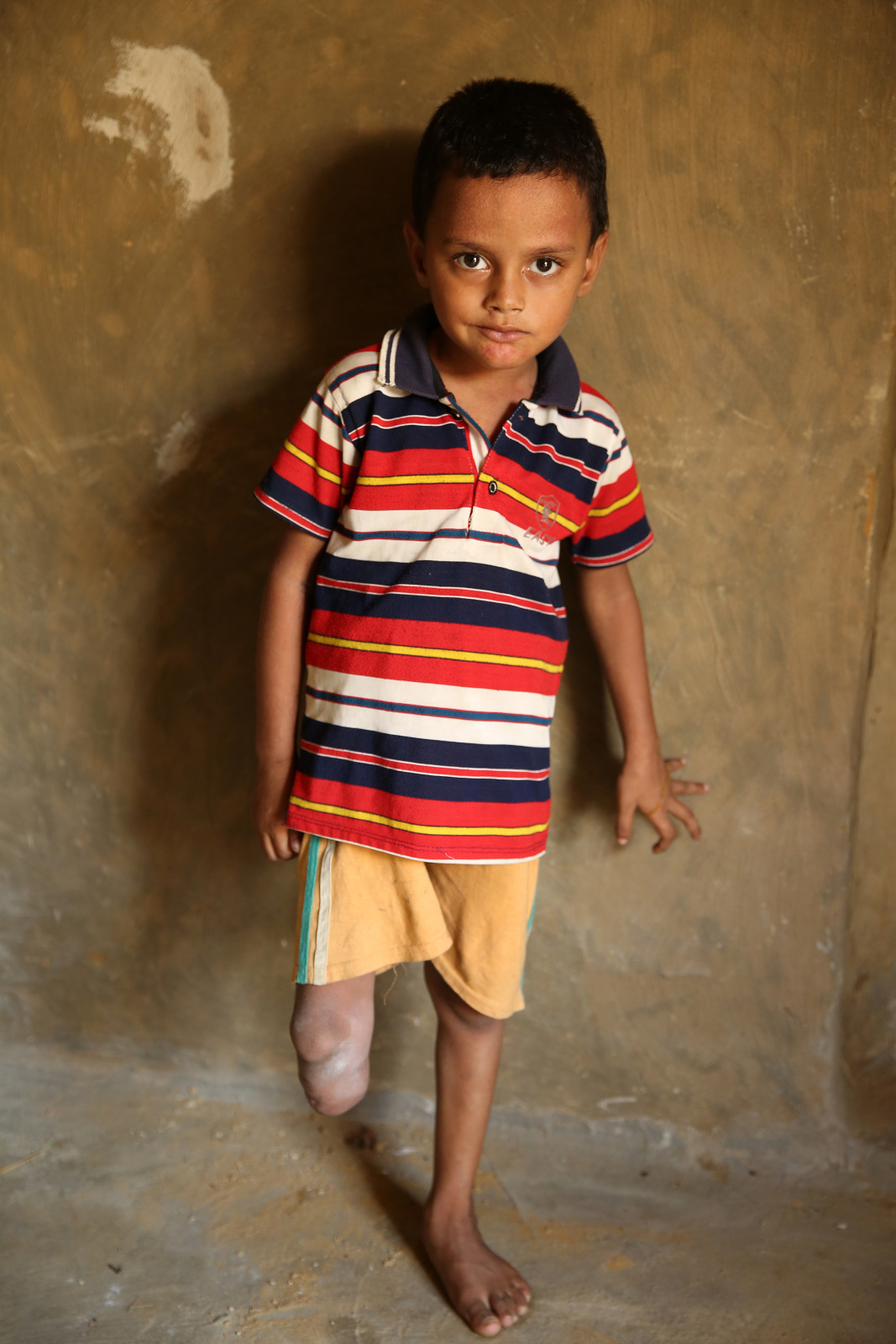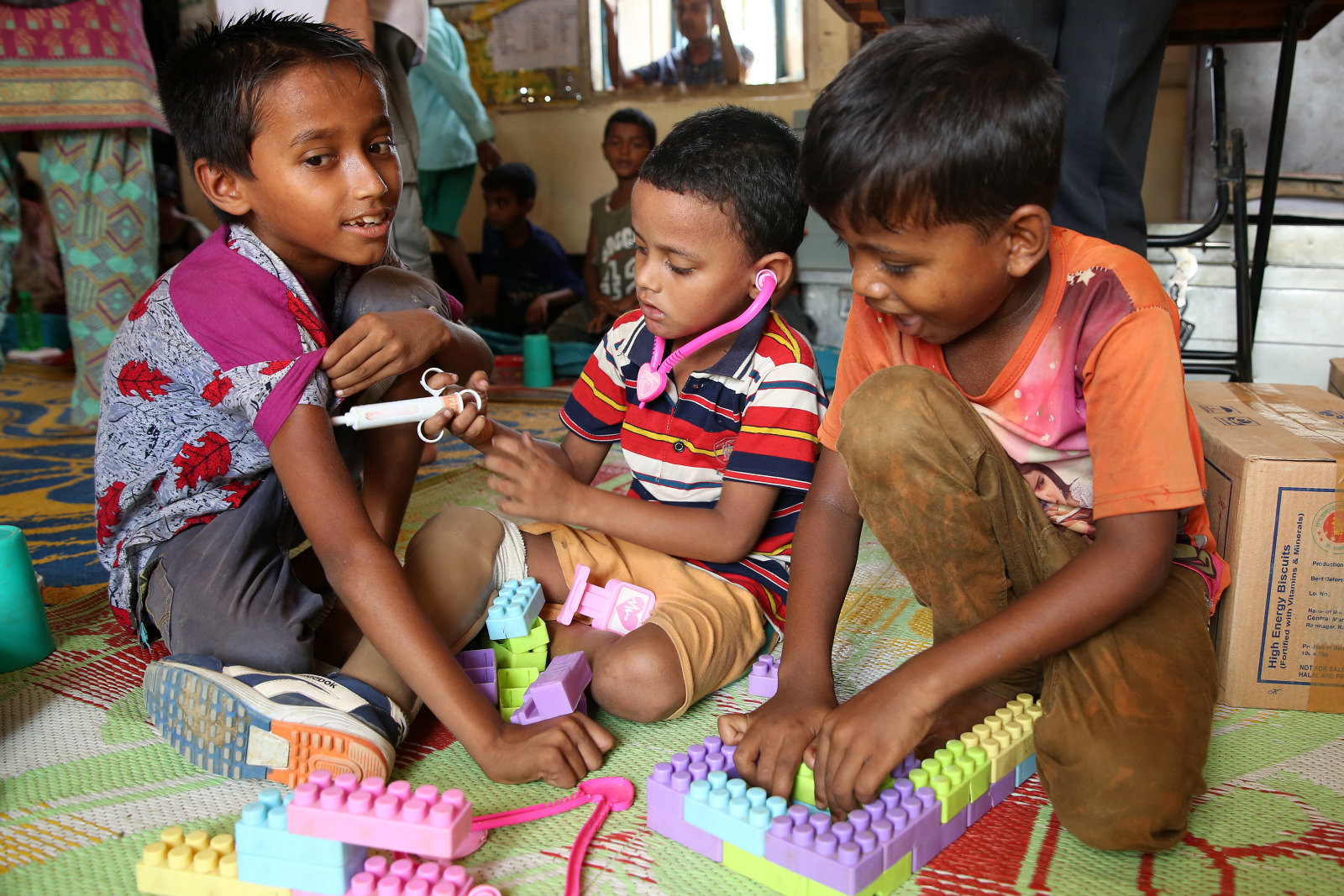“The fact that my son can go to school like the other children is really reasurring”
Anowar's family lives in the Kutupalong refugee camp in Bangladesh. In December 2017, Anowar lost his right leg in a road accident. Thanks to HI's support, he receives rehabilitation care and psychological support and now goes to school.

Anowar, 9, is living in Bangladesh refugee camp, Coxs Bazar, with his family. | © Shumon Ahmed/HI
 It’s dawn in Kutupalong refugee camp where more than 900,000 Rohingya now live after fleeing neighbouring Myanmar. Anowar,
It’s dawn in Kutupalong refugee camp where more than 900,000 Rohingya now live after fleeing neighbouring Myanmar. Anowar,
5, adjusts his prosthesis before he gets up and prepares to make the muddy journey to school.
Anowar was injured in a road accident in the refugee camp in December 2017 - a highly traumatic experience for a little boy – and had to have his right leg amputated at the knee. "Imagine losing your leg when you're five years old..." says his mother. HI’s teams immediately came to his assistance and fitted him with a prosthesis in April[1]. HI’s physiotherapists also gave him rehabilitation care, and he now has a pair of crutches. "After the accident, Anowar was extremely traumatised, so they gave him psychological support to help him feel better," explains his brother, Gura Miah.
“Anowar is more active now and plays with his friends in the camp. But he’s not self-reliant yet - he can’t go to the toilet alone, for example. And when it rains, like during the monsoon season, he could fall and injure himself at any time," adds Gura Miah.

His living conditions are still very difficult. “We use to have land but we had to leave everything behind. We got here in 2009. We have twelve children and fourteen of us live in two rooms. We can’t fend for ourselves - we can’t work or leave the camp. Since August 2017, lots of new Rohingya refugees have arrived. There are lots of people here now and we have to share access to services (health care, food, etc.). It's complicated, but we're all human beings and we have to be able to live together. And at least we’re finally safe here," adds his father, Abdus Salam.
[1]With support from ICRC.





